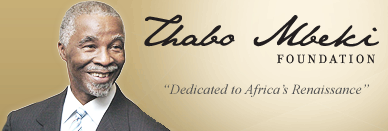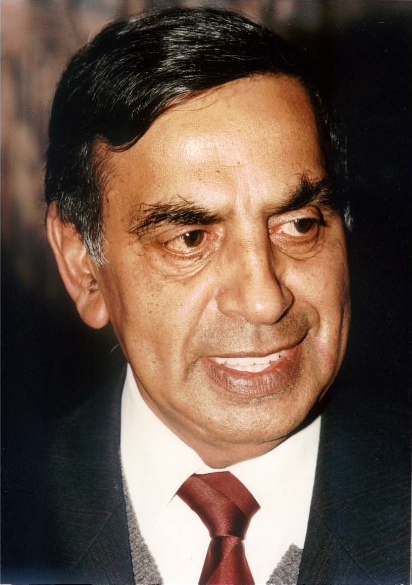A review and analysis, recalling the values of Dullah Omar
By Abdul Waheed Patel, Managing Director – ETHICORE Consulting and Advisory Solutions
On Thursday 16 February 2012, Former President of the Republic of South Africa and of the African National Congress – Thabo Mbeki, delivered the 8th Annual Dullah Omar Memorial Lecture hosted by the University of the Western Cape’s Community Law Centre, in tribute to the late Abdullah (‘Dullah’) Mohammed Omar. (*See the speech attached at the end of this blog post).
Themed “Reflections on peace-making, state-sovereignty and democratic governance in Africa”, the topic of the lecture was appropriately termed as a fitting tribute to the humanitarian, democratic, non-racial and peace seeking values and ethos Mr. Omar has widely recognised to have espoused throughout his life as an anti-apartheid activists, human rights lawyer, attorney and advocate, and as the steward of South Africa’s Truth and Reconciliation Commission (TRC) in post-apartheid democratic South Africa.
The context of the speech was also timely in the aftermath of ‘Arab Spring’ uprisings, the resolution of conflict, hostilities and peace-building in central and east Africa. As the architect of the ‘African Renaissance’ and the New Partnership for African Development (NEPAD), as well as the African Union appointed mediator and facilitator in numerous African conflict and post-conflict states (including most recently in Sudan which gave birth to Africa’s youngest country in the form of South Sudan), former President Mbeki is better placed than most to have delivered the topic of the 8th Dullah Omar Memorial Lecture through both a historical and contemporary ge0-political and economic lens, within the context of the values and ethos of Mr. Omar – having served with alongside Mr. Omar in the cabinet of three successive democratic governments, the African National Congress and the anti-apartheid struggle.
This was vintage Mr Mbeki in action – undoubtedly still one of the brightest minds on the African continent (apolitically speaking). The occasion of the speech was a rare opportunity to ‘access’ this intellectual prowess, now even formidable in my view because of his ability to retrospectively reflect on and draw on his wealth of experience as deputy head and head of party and state, as well as international diplomat and negotiator.
Foregrounding his speech against the backdrop of Dullah Omar’s widely recognised selfless spirit, Mr. Mbeki recalled his words to the first official memorial ceremony in honour of Mr. Omar following his death in March 2004. Quoting his speech on that occasion, Mr. Mbeki rcalled:
” We should speak of what it is that makes us to value Dullah Omar as we do, as an outstanding comrade and African, who belongs among the galaxy of stars that point our way to a better future…We owe it to him and others who dedicated themselves to serve the people of South Africa, ready to lay down their lives, to ensure that we eradicate poverty and underdevelopment, racism and sexism in our country, realise the renewal of Africa, and contribute to the construction of a new world order of equality among the peoples and a shared prosperity. To achieve these objectives we need the quiet courage of a Dullah Omar, without seeking fame and acclaim. We need the steadfast attachment to principle of a Dullah Omar, without expectation of personal reward. We require the unwavering focus on the interests and aspirations of the masses of the people of a Dullah Omar. We must cultivate the use of our minds and skills to advance the interests of the people as did Dullah Omar, rather than our selfish desires.”
Making the linkage with these same selfless principles as well as the lack thereof, Mr. Mbeki went on to historically, poetically and philosophically analyse the failure of African governments and governance institutions, both former and current, to successfully resolve conflict, build peace, entrench democracy and maintain their sovereignty without succumbing to powerful vested economic, political, military and imperial interests, drawing poignant empirical analogies to the hostilities and conflicts in Libya and more recently Syria. In so doing, Mr. Mbeki outlined a sobering and rare insight into the chronology of events, systemic manipulation and strategic reinterpretation of international and multilateral arrangements that brought down the Gaddafi regime, in pursuit of particular economic and political interests. Essentially this entailed explaining, clarifying and outright negating the perception that African leaders had opposed the United Nations Security Council attempt for regime change in Libya, because Gaddafi had effectively ‘bought’ the loyalty of African leaders. Instead, Mr. Mbeki explained how the rules of the UN multilateral systems had been systematically, deliberately and conveniently manipulated by powerful nations of the ‘West’ to provide NATO with the ability to empower the opposition National Transitional Council in a military campaign to overthrow the Gaddafi regime. Mr. Mbeki provided a vivid account of how the Western media has and continues to portray the unfolding of events and hostilities in Libya with a degree of inaccuracy and lack of critical examination, that denies these realities, quoting verified sources from the United States Defence Force as being unable to confirm that the Gaddafi regime was using its (the Gaddafi regime) air force to massacre civilians.
Mr. Mbeki went on to draw the all-important conclusion that for African leaders and governments to be successful and effective in building and maintaining peace, state sovereignty and democratic governance in their countries and on the African continent, they fundamentally need to remain loyal to the ordinary people of their countries, the continent and the world, saying that:
“To be part of that ‘great brotherhood’, and indeed sisterhood, surely means that we must conduct ourselves as Dullah Omar did, and remain loyal, in word and deed, to the objectives which inspired him throughout his life, to serve the ordinary people of our country, of Africa and the world. Dullah understood the intimate relationship between, and fought for the realisation of the integration through our efforts as Africans, of the objectives of democratic rule in Africa, the construction of sovereign developmental African states committed to serve especially the interests of the poor, and the achievement of peace among the Africans, regardless of race, colour, gender, religion and historical origin. I know that Dullah Omar shared with the Afrikaner youth I met 14 years ago, the vision that – ‘Yesterday is a foreign country – tomorrow belongs to us!’ As his movement, and ours, the African National Congress, celebrates its Centenary, and honours the memory of Dullah Omar, it will have to ask itself the simple yet challenging question – does it, as it advances into its second century, remain loyal, still, to the dream to whose realisation Dullah Omar dedicated his life, up to his last day on earth, as a committed and unwavering Pan-African revolutionary democrat, ever-faithful to the clarion call that was made by the 1st Pan African Congress, 112 years ago?”
In vintage style as we had become accustomed to witnessing of Mr. Mbeki during his term in public office, he quoted and referenced both the Irish poet William Butler Yeats and the Nigerian writer Chinua Achebe’s poems “Things Fall Apart”, to describe the resultant effect when the essential elements referred to above are absent and forgotten by leaders of states. Mr. Mbeki then went on to describe the importance of the African Union Charter on Democracy, Elections and Governance as a framework to be fundamentally and deeply understood, and uncompromisingly subscribed to and implemented by all African leaders and peoples to be able to:
- reinforce democracy and respect for human rights;
- develop our own capacity to resolve conflicts;
- defend the right to self-determination;
- structure individual and collection global relations; and
- rely on the resources and cooperation of African states to strengthen regional and continental organs.
It is not often these days that we are afforded with the regular opportunity of ‘accessing’ and tapping into the intellectual thought leadership of Mr. Mbeki since he has left public office. Its rare. Yet he portrays an even wiser character, sharper insight and somewhat more imposing statesman figure. This was a rare glimpse of a former statesman (yet as statesmanly and commanding in presence as ever) comfortably and graciously easing his way into the mould of elder, wise statesman.
Mr. Mbeki’s contribution was a fitting tribute to Mr. Omar and a stark reminder of how much more still remains to be done to entrench a society of non-racialism, equality, justice, fairness, good governance and self-less public purpose, the ideals of a society which Mr. Omar so dearly cherished, stood and fought for as his life’s purpose.
Note:
The Annual Dullah Omar Memorial Lecture is hosted by the Community Law Centre of the Western Cape to honour the late Abdullah Mohamed Omar as a fighter for human rights and democracy, as the driving force behind the establishment of the centre as a centre of research and advocacy on human rights and democracy. In 1990 he became the director of the Centre. Under his leadership, the Centre became a major contributor to policy formulation for South Africa’s democratic constitutional order. Mr. Omar was an anti-apartheid human rights lawyer who provided legal counsel to trade unions, people victimised by apartheid laws, political prisoners, civic and religious organisations. At the height apartheid, he played a key role in the formation of the United Democratic Front. With the normalisation of politics in 1990, he became the Chairperson of the African National Congress in the Western Cape and participated in negotiations for the new democratic Constitutional order. Her served as the first Minister of Justice in President Nelson Mandela’s Cabinet (1994 – 1999) and later as Minister of Transport under President Thabo Mbeki from 1999 until his passing on following a battle with cancer in March 2004. He is survived by his wife Farieda, sons Kemal and Rustum, as well as daughter Fazlin.
Thabo Mbeki-speech_DullahOmar Lecture
Links:


